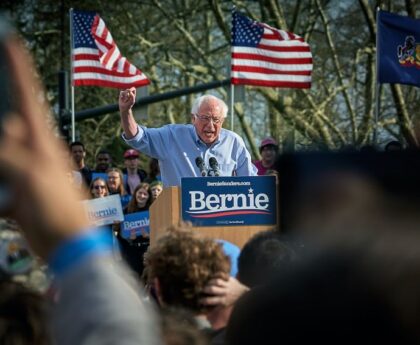Sen. Joe Manchin Contemplates a Third-Party Presidential Bid: A Threat to Partisan Politics?
Rethinking the Political Landscape
The news of Democratic Sen. Joe Manchin considering a third-party bid for the presidency has ignited debate and raised questions about the role of partisan politics in America. Manchin, who represents West Virginia, has expressed his dissatisfaction with the extreme positions taken by both major political parties, stating that they have veered too far to the right and left. He believes that the American people need an alternative option that can bridge the divide and offer a more unified approach to governance.
In recent years, there has been a growing sense of disillusionment with the two-party system and the polarization it often brings. Manchin’s potential bid reflects a sentiment shared by many Americans who feel that their voices are not adequately represented by the current political landscape. By considering a third-party run, Manchin aims to present an alternative choice for those disenchanted with partisan politics.
No Labels: A Bipartisan Movement?
Manchin’s exploration of a third-party bid aligns with the efforts of the No Labels movement, a bipartisan group seeking to offer Americans a third choice if the 2024 race becomes a rematch between President Joe Biden and former President Donald Trump. No Labels, which champions bipartisanship and moderation, believes that the country needs a centrist agenda and a candidate who can bridge the divide between Democrats and Republicans.
The movement acknowledges the deep-seated trust issues many Americans have towards their institutions and leaders, emphasizing the need for a more united and pragmatic approach to governance. No Labels has unveiled a “common sense” policy book that seeks to find middle ground on divisive issues such as abortion rights, gun control, and immigration.
While some may view No Labels as a utopian ideal in today’s deeply polarized Washington, the movement’s efforts have already yielded ballot access in several states. With plans to expand to 20 states by the end of the year, No Labels aims to establish itself as a viable alternative to the two major parties.
Beyond the Spoiler Debate
One of the primary concerns surrounding third-party bids is the potential for spoiling the chances of a major-party candidate. Critics fear that Manchin’s candidacy could siphon off votes from Democratic nominee Joe Biden, thus aiding the potential reelection of Donald Trump.
However, Manchin has affirmed that his intention is not to be a spoiler but rather to present himself as a serious contender for the presidency. He maintains that in all his past races, he has run to win and not to serve as a disruptive force. Additionally, Cornel West, who is mounting a Green Party presidential bid, rejects the label of spoiler entirely, emphasizing the importance of focusing on the issues that affect poor and working people.
While the spoiler argument holds weight, it is essential to recognize that third-party candidacies also serve as a wake-up call for the major parties. The rise of independent candidates in recent history, such as Ross Perot in 1992 and the Green Party’s Ralph Nader in 2000 and Jill Stein in 2016, demonstrates a growing dissatisfaction with the status quo and a desire for alternative voices in American politics.
Editorial: A Wake-Up Call for the Major Parties
The potential entry of Joe Manchin into the presidential race as a third-party candidate presents an opportunity for both major parties to take a hard look at their positions and policies. Instead of dismissing third-party bids as spoilers, Democrats and Republicans should view them as a sign that a significant portion of the electorate is yearning for alternative choices.
The two-party system, while dominant, is not immune to change. It is the duty of the major parties to listen to the concerns of the American people and adapt their platforms accordingly. The rise of third-party movements like No Labels illustrates the appetite for moderation and bipartisanship, a departure from the divisive politics that have become all too familiar.
Manchin’s potential bid, should he choose to pursue it, should be viewed not as a threat but as an opportunity for the major parties to reevaluate their positions and find common ground. Rather than dismissing third-party candidates as spoilers, Democrats and Republicans should engage in a substantive conversation about the issues that matter most to the American people.
Advice: Embrace Diversity and Collaboration
As we navigate a complex political landscape, it is crucial for Americans to consider a variety of perspectives and engage in constructive dialogue. While third-party candidates may face considerable challenges in gaining traction, their presence forces the major parties to reflect on their policies and reach out to a broader range of voters.
In the face of political polarization and division, embracing diversity of thought and encouraging collaboration can lead to innovative solutions and a more representative democracy. Instead of viewing third-party bids as a threat, let us see them as opportunities for growth and change.
By being open to alternative voices and engaging in respectful discourse, we have a chance to build a more inclusive political system that better serves the interests of all Americans.

<< photo by Markus Spiske >>
The image is for illustrative purposes only and does not depict the actual situation.




